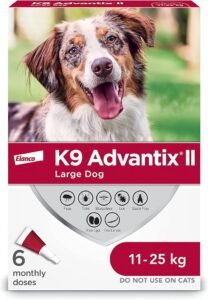If you’ve ever watched a pet turn up its nose at a new food, you know how important palatability is in pet nutrition. Pet food palatants play a crucial role in ensuring that our furry friends not only eat their food but enjoy it. But what exactly are these palatants, and how do they work?
What Are Palatants?
Palatants are ingredients added to pet food to enhance its taste and aroma, making it more appealing to pets. Think of them as flavor enhancers specifically designed for animal palates. They can be natural or synthetic and are formulated to trigger the sensory receptors in pets, encouraging them to eat more eagerly.
The Science Behind Palatability in Pets
Animals, much like humans, have taste buds and olfactory receptors that influence their food preferences. However, pets like dogs and cats have different sensitivities:
- Dogs have about 1,700 taste buds and a strong sense of smell.
- Cats have around 470 taste buds but an even more acute sense of smell.
Palatants work by stimulating both taste and smell, ensuring that the pet finds the food irresistible. According to a study by the Journal of Animal Science, palatability directly affects feed intake and overall animal health.
Types of Pet Food Palatants
1. Natural Palatants
Derived from natural sources like meat, fish, or plants, these palatants are often preferred for premium pet foods. They not only enhance flavor but can also add nutritional value.
2. Synthetic Palatants
These are chemically formulated to mimic natural flavors and aromas. They are cost-effective and have consistent quality but may not offer additional nutritional benefits.
3. Liquid Palatants
Ideal for coating dry kibble, liquid palatants ensure even distribution of flavor and aroma across the food.
4. Powdered Palatants
Commonly used in dry pet foods, powdered palatants are mixed directly into the food during manufacturing.
Benefits of Using Palatants in Pet Food
Enhanced Flavor and Aroma
The primary role of palatants is to make pet food more enticing. A better-tasting food means pets are more likely to eat it eagerly.
Improved Nutritional Intake
By increasing the appeal of the food, pets consume their meals more completely, ensuring they receive all the intended nutrients.
Supports Pet Health
Consistent eating habits contribute to better digestion and overall health. Palatants can help picky eaters maintain a balanced diet.
Competitive Advantage for Manufacturers
For pet food manufacturers, using high-quality palatants can differentiate their products in a crowded market, appealing to both pets and pet owners.
How Palatants Enhance Pet Food Products
1. Stimulating Appetite
Palatants can trigger hunger signals in pets, encouraging them to start eating even if they’re initially uninterested.
2. Masking Unpleasant Tastes
Some pet foods contain medications or supplements that might taste bitter. Palatants help mask these flavors, making the food more acceptable.
3. Encouraging Hydration
In wet foods, palatants can enhance moisture content and appeal, promoting better hydration in pets.
4. Customizing Flavor Profiles
Manufacturers can tailor palatants to create specific flavor profiles, such as beef, chicken, or fish, catering to different pet preferences.
Choosing the Right Palatant for Your Pet Food Product
Selecting the appropriate palatant involves considering several factors:
Pet Species and Breed
Different animals have varying taste preferences. For example, cats may prefer fish flavors, while dogs might favor meat-based palatants.
Food Type
Wet, dry, or semi-moist foods require different palatant formulations to achieve optimal flavor enhancement.
Nutritional Goals
Align the palatant with the nutritional objectives of the food. Natural palatants might be preferable for health-focused products.
Regulatory Compliance
Ensure that the palatants meet all regulatory standards in the target markets, such as AAFCO guidelines in the United States.
Trends and Innovations in Pet Food Palatants
Clean Label Ingredients
There’s a growing demand for natural and transparent ingredient lists. Manufacturers are seeking palatants derived from sustainable and traceable sources.
Functional Palatants
Beyond flavor, these palatants offer additional health benefits, such as probiotics for digestion or antioxidants for immune support.
Customized Solutions
Pet food companies are collaborating with palatant manufacturers to develop proprietary blends that set their products apart.
Global Flavors
Incorporating exotic flavors and ingredients inspired by global cuisines is becoming a trend, catering to pets’ diverse preferences.
Conclusion
Palatants are more than just flavor enhancers; they’re essential components that contribute to pet satisfaction and health. For pet food manufacturers and wholesalers, understanding and utilizing high-quality palatants can lead to better products and happier customers—both pets and their owners.
Ready to elevate your pet food products with premium palatants? Visit profypet.com to discover how our expertise can help you create pet foods that stand out in the market.











